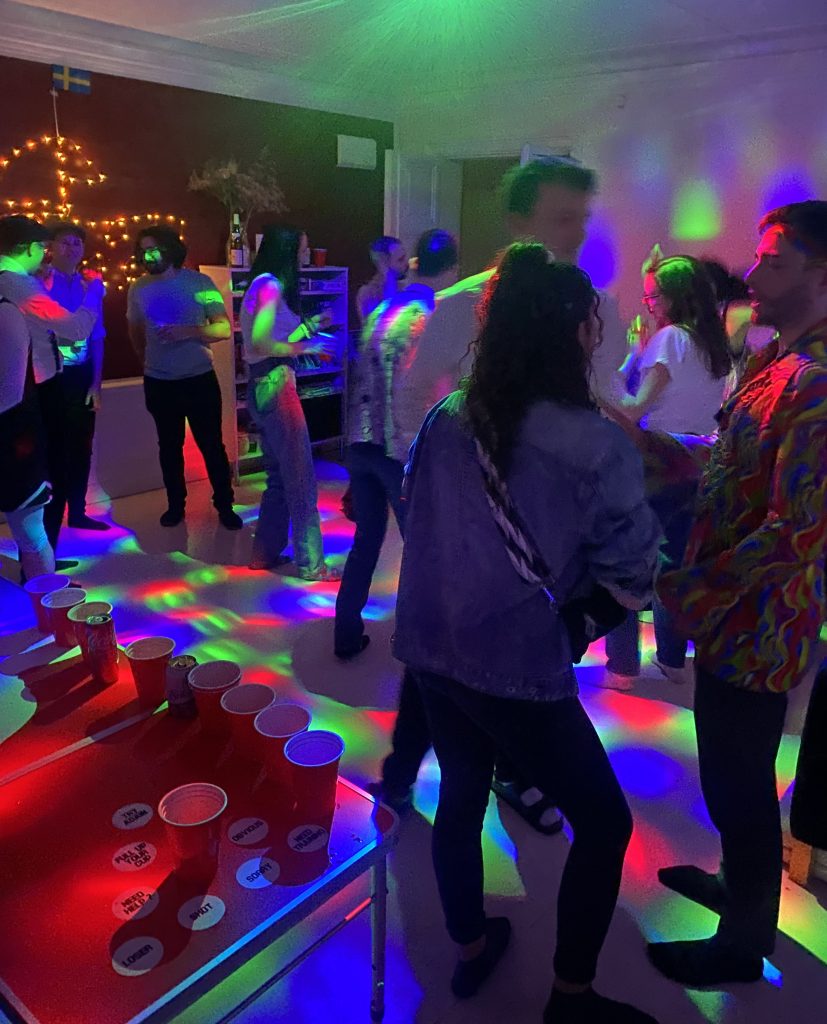
Impostor syndrome in academia
This blog post will cover impostor syndrome, and some steps to address this unsettling, yet reoccurring experience in academia.
What is impostor syndrome?
Impostor syndrome comprises of a series of emotional and behavioural perceptions stemming from feeling unworthy of recognition, and that their skills, achievements, or contributions are fraudulent (when it most often is not). You have difficulty validating and accepting your success and skills. Instead, you end up feeling self-doubt or anxiety over your performance. You feel like you are a bluff that doesn’t belong in your environment. You may also fear being “exposed” as a fake despite verifiable evidence of your achievements in the field(s).
Anyone may experience such feelings at some point in their careers. Those in highly prestigious settings, such as in academics related to the medical and/or healthcare field, including students at Karolinska Institutet, are no exception. Beneath all the excitement, I was absolutely petrified coming into KI two years ago. Yes, I had gotten in. Yes, I had experience working in my field prior. But I still felt like I was going to get exposed for making up the things I knew. It doesn’t make logical sense, but the mind can run its own course of logic on us until it somehow starts making sense!
These are some small habitual activities I started implementing during the course of my masters education to manage impostor syndrome.
List your achievements and celebrate them often
When in doubt, counter it through an evidence-based approach. Grab a piece of paper and a pen or your Notes app. Start bullet-listing all of your accomplishments in your academic field, big and small. The number of things that you have achieved may pleasantly surprise you. This list can serve as objective evidence against your internal doubts and criticism. Moreover, it’s a healthy exercise in getting to know yourself more. Combined, I think it can helped you become confident in your abilities.


This is also a great way to develop or polish your existing CV, cover letter(s), or towards any interviews you will have in the near future, as you learn to summarize your major skills into concise sentences.
Based on your growing list, it is worth highlighting achievements you are especially proud of and celebrate them! Treat yourself to a sweet beverage of your choice, invite friends to celebrate with you, or take an afternoon off.
Make space to identify the reasons behind your self-doubt
I got extremely nervous about presenting my thesis in front of the research group. Despite not being scheduled for the presentation until May, I remember waking up stressed on a random weekday in March because I had dreamt about embarassing myself during the presentation. I think it’s important in these instances to reflect, and identify why you are feeling like an impostor.
Identifying why I felt intimidated
For me, I was intimidated by my workplace. I was in a room full of PhD’s and post-doc researchers and felt dumb whenever I got confused about my thesis. The research group meetings were also scary for me at times. I noticed researchers asking detailed questions on why the presenter chose a certain method over another, or if they accounted for biases that I knew of but did not think of at that moment. Why could I not formulate these questions? I thought that it was because I was simply not smart enough. I was intimidated based on my perceived gap in knowledge and expertise in epidemiological methods. The intimidation made me doubt my place in that environment. I felt as if somebody would denounce me for not understanding the presentation content.
Steps to make the environment less intimidating
But I soon realized that the same people asked these complex questions, and the majority of group members were not. I also tried to pay attention to certain aspects of the presentations a little extra, so that I could formulate some questions. Moreover, I realized that the intimidation came from the image of the other researchers that I had unfairly created. I hadn’t gotten the chance to talk to many of them yet and assumed that they were cold and scary. This is why I gradually started to talk to some of them during coffee breaks and so forth.
After a few weekly meetings, I also asked a question to a presenter after a meeting. I got met by a very thoughtful and friendly response. I also ended up asking a follow-up question about my own research methodology, as their project was also on psychiatric epidemiology.
Reducing impostor syndrome over time
My reflective process on tracking down why I felt like a fraud in the research group ended up breaking down some barriers. I now felt like I had a greater support system that would not ridicule me if I made small errors during my presentation. Simultaneously, I also built up my confidence in epidemiological research methods to feel slightly less intimidated.
Practice self-compassion
The truth is, impostor syndrome is quite hard to get rid of completely. I’ve resonated with feelings of extreme self-doubt through college, and had built up my confidence during my masters programme. During my thesis semester, it came right back into my life.
At times where you are wrong about things, when you don’t meet deadlines, get unexpected feedback from supervisors, or don’t do well on a job interview than you hoped for, I think it’s easy to cherry pick these instances to feed your mind into thinking that you in fact are a fraud. Instead of spiraling into your thoughts any further, take a breather. When situations turn unexpectedly sour, I believe it is important to show some kindness to yourself. If you at first find it difficult, imagine you are trying to help a friend feel better instead of yourself.

How do you talk to yourself? Would you tell the things you told yourself to a friend? How would you respond kindly and patiently, if your friend said the very things you were telling yourself?
I think identifying negative self-talk language that amplifies your impostor syndrome and exchanging them for more compassionate ones is a sustainable practice. Gradually, you build self-resilience and “immunity” against your own mind attacking you.
I also think it’s a sign to take a brisk walk, grab a hot chocolate, go for a small exercise round, and so forth. Doing something completely unrelated can be a simple, but an effective, kind gesture to yourself. I’m not saying you should take a day-off every time you feel triggered. Instead, create some small pockets of time and space in your day(s) to invest in being kind to yourself, just as you do to your friends.
Acknowledging your “failures”
So you make mistakes or fail. I think that is completely normal. But individual failures doesn’t make you a failed individual. Nonetheless, I think failure is often stigmatized. Many students including myself, feel a lot of shame around it. When I failed a course during my first year by just a few marks, I was frustrated and embarassed. I felt a need to hide my situation from my friends. This made me feel worse, as I felt like I was alone in the issue.


However, I noticed that quite a few of us, many whom I call my friends, were on the same boat. And it felt so much better just to accept and admit our collective failures. It even became a bit of a laughing matter that we bonded over after our re-exam. It felt freeing to admit and share that I had failed the course to others. There was little stigma surrounding the matter, and many classmates showed a lot of empathy towards those taking the re-exam.

I think failure is a good time to reevaluate and set realistic expectations for yourself. What went wrong, and how can you address it next time? In what ways can you grow from the situation? In my case, it was improving my notetaking and reading comprehension skills. I felt like I got to develop new ways of learning that were more time-efficient and increased my ability to identify key learning outcomes of a course.
Impostor syndrome and systemic issues
Despite it being a fight against your own mind, I think it’s important to recognize that impostor syndrome can reflect a systemic issue in academia. Some students may be more prone to impostor syndrome due to their unique background, or lack of representation in academia.
This is why it may be important to support culturally diverse and equitable environments in academia. Only then can we all contribute to a more welcoming and inclusive setting, regardless of if you struggle with impostor syndrome or not. I believe we can all help mitigate this issue!
Final thoughts
By equipping ourselves with ways to deal with impostor syndrome, I believe we can develop the mental tools to continue being high performance academics in a sustainable manner. I think we can be more resilient, reflective, receptive to criticism, accepting of our mistakes, transparent, and empathetic towards our colleagues for years to come.

Risa-Public Health Sciences
Hej! I am Risa, a Japanese Master's student in Public Health Sciences starting my studies in 2023 at Karolinska Institutet. Having been interested in the multidisciplinary, globally applicative, and cooperative nature of the public health field, paired with my familiarity with KI’s global reputation, I’ve always had the desire to study at KI. I enjoy curating playlists, petting cats, and going on scenic walks around Stockholm in my free time.

0 comments